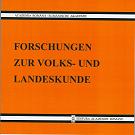DIE AUFLEHNUNG DER HERMANNSTÄDTER LEHRERSCHAFT GEGEN BISCHOF MÜLLER IM VORFELD DER SCHULREFORM VON 1948
Saxon Teachers’ Revolt in Sibiu against the Lutheran Bishop Friedrich Müller on the Eve of 1948 School Reform
Author(s): Annemarie WeberSubject(s): History
Published by: Editura Academiei Române
Keywords: Transylvanian Saxons, Sibiu, Evangelical Lutheran Church, School Reform of 1948, teacher’s revolt, bishop Friedrich Müller.
Summary/Abstract: In 1948, on the eve of School Reform, a group of church schoolteachers revolted in Sibiu against the leadership of the Evangelical Lutheran Church – namely against the Bishop, the supreme authority of the Transylvanian Saxons. Both the teaching staff and the church suffered from an economically and socially precarious situation. Due to Agrarian Reform and ample confiscations repeatedly made by the House of Administration and the Surveillance of Hostile Assets, controlled by the Soviets, the Church was no longer able to pay full salaries and pensions to its employees, especially once teachers’ salaries had considerably been increased by law in September 1946. Moreover, the galloping inflation of 1947 and 1948 had dramatically reduced the purchasing power of any money which was paid to teachers. In order to avoid collapse, the Lutheran Church started paying salaries in installments and compensating the difficult financial situation by giving donations. On the eve of the Monetary Reform in the summer of 1947, financially insecure teachers had received a money donation. The strong advice was to spend it at once on desperately needed food. However, time was too short for them to effectively use the donated sum of money. With the obvious imminence of the Nationalization of Confessional Schools the teachers’ discontent with their Church leadership had transformed into open conflict. In the spring of 1948 some teachers had been paid their salaries by the Government. The Church, which had lost a great part of its authority meanwhile, demanded that these teachers should return the money which had been paid to them in advance by the Church treasury. The political implications of the vehement rejection of this demand reached up to the highest administrative levels, actually involving the Minister of Education. Thus the teachers’ revolt which had initially been caused by an economically unstable situation rapidly developed into a political cause. There were many other actors on the political stage of the time who shared the teachers ideas and offered support to achieve their aim: the elimination of the “reactionary” Bishop as leader of the Church.
Journal: Forschungen zur Volks- und Landeskunde
- Issue Year: 2014
- Issue No: 57
- Page Range: 21-36
- Page Count: 1
- Language: German
- Content File-PDF

